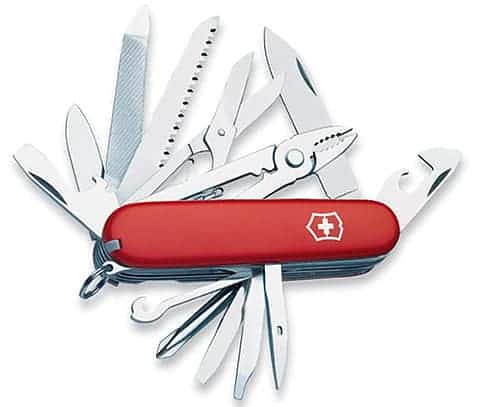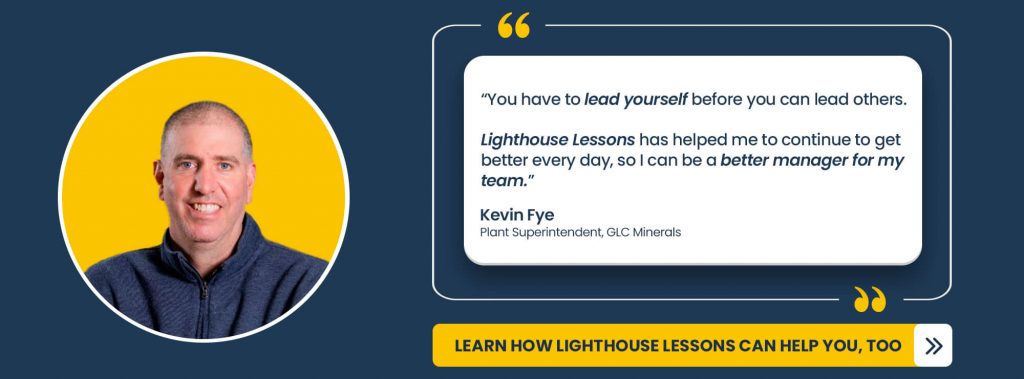
There's a tool at the disposal of every manager in the world that is the key to solving many of their most pressing problems. But like a swiss army knife being used as a hammer, most managers are wasting this tool by only using it to a small fraction of it's potential.
That multi-tool is your one on one.
Every week your team works hard to complete the tasks that will move your team and the company forward. The vast majority of your interactions with them are focused on those tasks and projects that you need them to complete. One on ones are the one meeting for and about them.
If you're using that one on one time for status updates on projects (never do that!) or asking the same 3 questions every time, you're missing out on a whole world of awesome things you could be getting out of those meetings.
One on ones are the key to motivating your team, fixing problems, growing them to be greater than they are today, and so much more. Let's look at how you can use your one on ones like the versatile tool they are:
- Give Timely Coaching to Your Team
- Talk About Growth for Your Team Members
- Get Their Ideas and Suggestions
- Float Your Ideas and Discuss Big Changes
- Find out how your team is really feeling & why
Are you making the most of your one on ones? Here's how.

1) Give Timely Coaching to Your Team
No team is perfect out of the gate. It takes hard work, good coaching, and quality feedback to get everyone working well together and executing effectively. As a manager, being a great coach means giving timely feedback to your team members and looking for opportunities to help them improve.
There are often good times for you to help people in the moment, but not always. For those moments when you can't immediately give them feedback, the best thing you can do is note it and talk about it in your next one on one.
The beauty of one on ones for coaching is that it's a lower stress environment. You'll likely talk about a few other things in the meeting and so it will feel more natural to bring up the issue without having to resort to the "sh*t sandwich".
You also avoid stressing them out by calling a special meeting just to talk about it; if you're having your one on ones often enough then you're not going much more than a week without discussing it. And by discussing it face to face, you don't have to worry about an email with feedback being misconstrued or not well received.
Many people struggle with not receiving enough feedback on their work. Use your one on ones to give both positive reinforcement for great work and to help them improve. That's great coaching.

2) Talk About Growth for Your Team Members
Progress is addictive for your team members. While finishing projects, closing deals, and shipping features can bring some fulfillment of progress, the most important progress to them is their own personal development.
As a manager, you have an incredible opportunity to develop your people. Burying their career and personal goals in an entry in Workday after you hastily discuss them in their annual reviews is completely missing that opportunity. Instead, use your one on ones as an opportunity to dive into their goals and how they can get there.
Most growth and career goals for your team will be big. They'll take months if not years to reach. That means you have two very important roles to play:
- Break them down into smaller pieces: This ensures that small wins occur along the way to a major goal.
- Circle back to discuss them monthly: if you have weekly one on ones, a good cadence is every 4th one on one you focus the discussion on their goals. If you have biweekly one on ones, every 3rd one on one is a good rhythm. In both cases, there's enough time to make some incremental progress between discussions without feeling like they're forgotten. (Not having one on ones that often? You should)
Talking about career goals should be one of the most exciting things you do with your team. There are few joys greater as a manager than seeing someone grow in their role and become greater than they were when they joined your team.

3) Get Their Ideas and Suggestions
One of the keys of the renowned Toyota Production System is the idea that those on the front lines have the best ideas for improvement, because they have the best perspective on what's really going on. Your team is no different.
When you don't have other pressing topics to cover in your one on ones, asking your team for ideas to improve the way you work, the work environment, and the company as a whole can be an incredible source for great ideas to help the team work better, new product and revenue ideas and more. And if you really want to be a pro, ask everyone on your team the same week so you can then see the trends across ideas from everyone.
By bringing up the questions in a one on one, it's lower pressure. The ideas don't have to be fully baked. There's no fancy presentation or prototype they need.
Instead, it's just a conversation, where you can explore the idea and its implications with them and share the ideas you heard from other teammates. If you're not sure how to get started, here's a few questions to try.

4) Float Your Ideas and Discuss Big Changes
Your team can be the source of many valuable ideas and insights, and you will also have ideas. Rather than waiting for a big pitch to your whole team, you can avoid potential major pitfalls by first floating your idea to some of your team members in a one on one. It takes advantage of the low pressure environment of the one on one, and sets the example for your team that it's a safe place to share ideas and get feedback.
Sometimes, there's also important changes coming. Again, it's much better to have discussions where people can air their concerns privately and you can work to get their buy in than to hope it all works out when you present it to the whole team in a group session.
An additional benefit of having these discussions in one on ones is that you can avoid the temptation for people to "go along with it" because they see others aren't opposing it.
Show your people you value their opinions, and don't want them to be "Yes Men" by talking privately in one on ones about important ideas.

5) Find out how your team is really feeling & why
You may feel uncomfortable getting to know your team personally. Separating work and home life may seem like a good way to keep your relationship "professional." Unfortunately, that's not how life works.
Work spills into and can affect your personal life and personal issues affect your work ability. Think back to how you felt after a bad break up, or a death or serious illness in your family, and how well you worked then. Think about how stress at home influences someone's work.
A story: Life impacts work
I had a coworker once who lived in a slightly rough part of town. One day his wife got chased by a crazy, homeless person, and was only saved by running into a convenience store. This clearly shook him up.
For the next few weeks, he was basically staring at his phone when he knew his wife was on her commute to make sure everything was ok. He didn't get much done during that hour of the morning every day.
As a manager you want to recognize issues like that and talk to them about how you can help, whether that be talking about them moving, allowing them to adjust their hours, or just letting them know you understand their concerns.
Rapport pays dividends.
You build tremendous rapport and trust when you can empathize with them. Share in their personal and professional victories, and show some understanding when their mind is elsewhere.
It's much better to show you care and send them home for an afternoon if they're upset and distracted than pretending it's not happening and ignore their inability to focus on their work.
It also pays massive dividends later when you need them to come through; people work harder for those they like and respect.
---
Being a manager is a complete change in mindset. It's not for everyone.
You are now serving a team of people with unique quirks, motivations, and passions. You are no longer measured on your own abilities.
Instead, it is your ability to motivate and retain a great team to get things done that matters. Don't underestimate how big a change that is for you. Your one on ones are your best chance to stay on top of all these new challenges.
But who has time to cover all this?!?
If you don't feel you have time to cover all this, it's probably because you're not having one on ones frequently enough.
If you manage 5 or fewer people, you should try to have weekly one on ones. For larger teams, bi weekly is probably your best bet.
And if you manage more than 15 people, you should be promoting someone to help manage some of them. This will ensure you can actually cover all these things. (More on how to develop leaders in that situation here.)
Want to continue learning about 1 on 1s? This post is one of dozens we have to help you be your best in any situation. Find our comprehensive guide to one on one meetings here.
Are you growing as a leader? Are you building the skills you need?
Get better as a leader every day with our bite-size leadership training programs, Lighthouse Lessons. Purpose built for busy managers like you, they help you become a better leader by mastering the skills that bring out the best in your team. You can learn more and sign up here.





